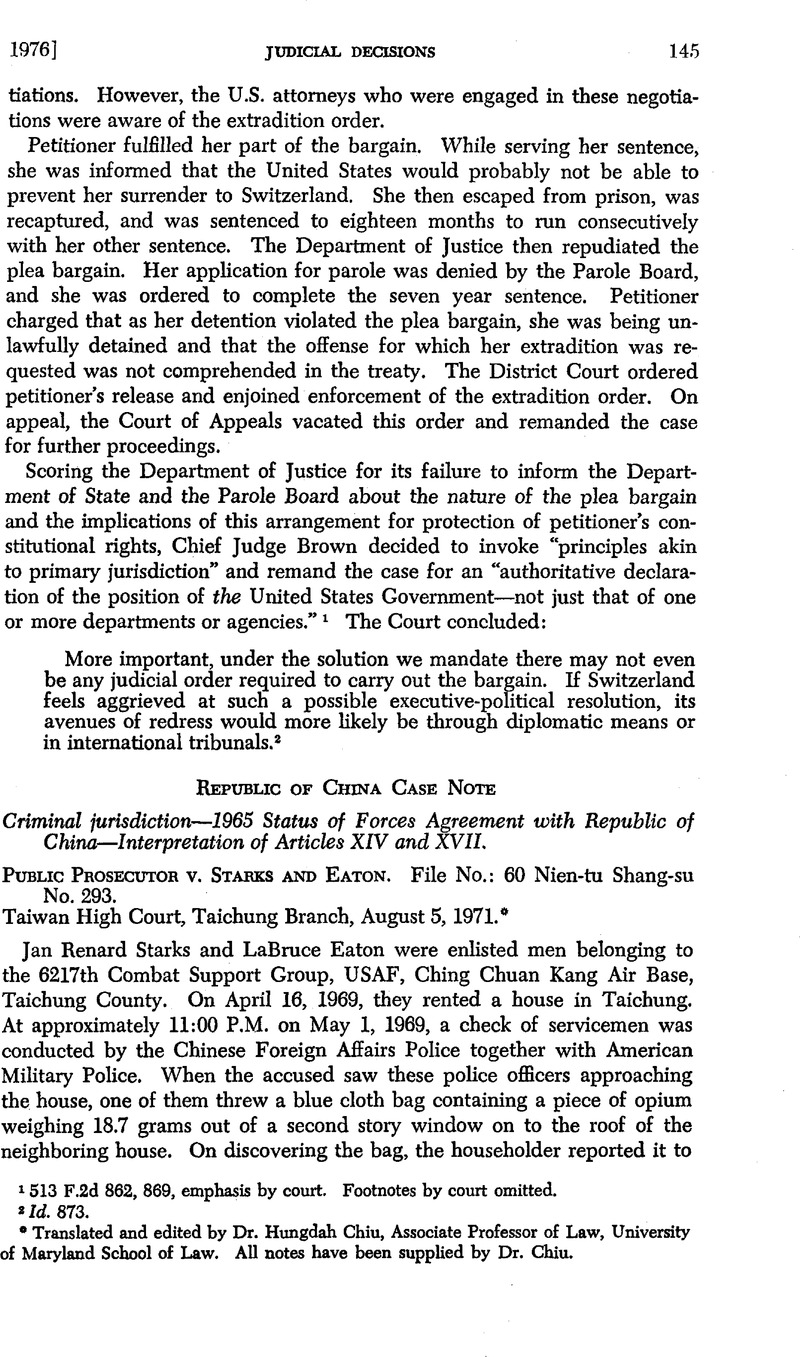No CrossRef data available.
Article contents
Republic of China Case Note
Published online by Cambridge University Press: 08 June 2017
Abstract

- Type
- Judicial Decisions
- Information
- Copyright
- Copyright © by The American Society of International Law 1976
References
* Translated and edited by Dr. Hungdah Chiu, Associate Professor of Law, University of Maryland School of Law. All notes have been supplied by Dr. Chiu.
1 The agreed minute to Article XIV(3)(c) of the Status of Forces Agreement between the United States and the Republic of China, August 31, 1965, 17 UST 373, TIAS No. 5986, 572 UNTS 3, provides that the Republic of China waives in favor of the United States the primary right granted to the Chinese authorities in cases of concurrent jurisdiction provided in Article XIV(3)(b). However, the Chinese authorities can recall such a waiver in a specific case if “major interests of Chinese administration of justice make imperative the exercise of Chinese jurisdiction.”
2 Promulgated on June 3, 1955. Article 10(1) provides: “A person who possesses narcotics or opium shall be punished with imprisonment for not less than two years and not more than five years.”
3 According to Article 16 of the Narcotics Statute, except for a sentence of life imprisonment or the death penalty, no appeal can be made to the Supreme Court.
4 Article 128(1) of the Code of Criminal Procedure provides: “A search requires the use of a search warrant.”
5 Article 131 of the Code of Criminal Procedure provides: I. A judicial policeman or judicial police officer may search a dwelling house or other premises without a search warrant under one of the following circumstances:
I. A judicial policeman or judicial police officer may search a dwelling house or
other premises without a search warrant under one of the following circumstances:
…
3. If sufficient facts exist to show that a person inside the premises is committing a crime, and the circumstances are urgent.
II. Within twenty-four hours after making a search as specified in the preceding paragraph, the case shall be reported to a procurator of the court.
It should be noted that under Chinese law during the investigation period, a search warrant is issued by a procurator. But when the case is at the trial stage, a search warrant is issued by a presiding or commissioned judge (Article 128(3), Code of Criminal Procedure).
6 Under Article 263 of the Criminal Code, the punishment for possessing opium with intent to commit the offenses of selling, smoking, or manufacturing opium is detention (1 day to 4 months) or a fine of not more than 500 yuan (approximately U.S. $40.00).




